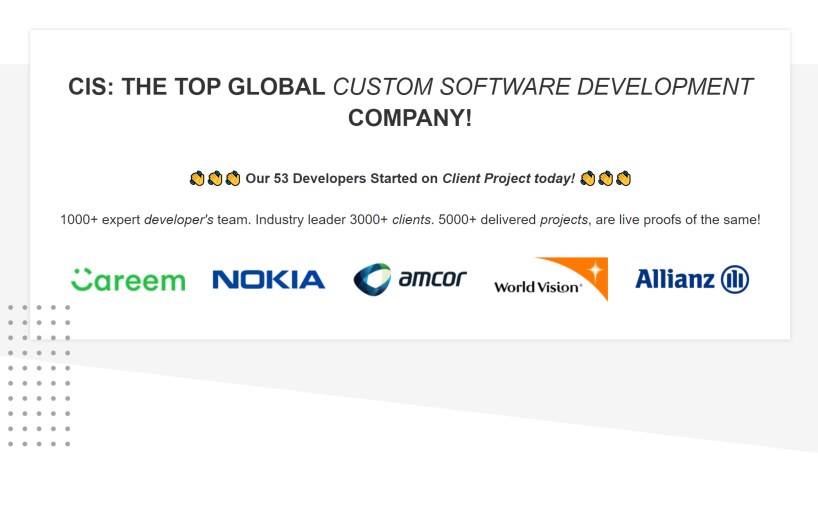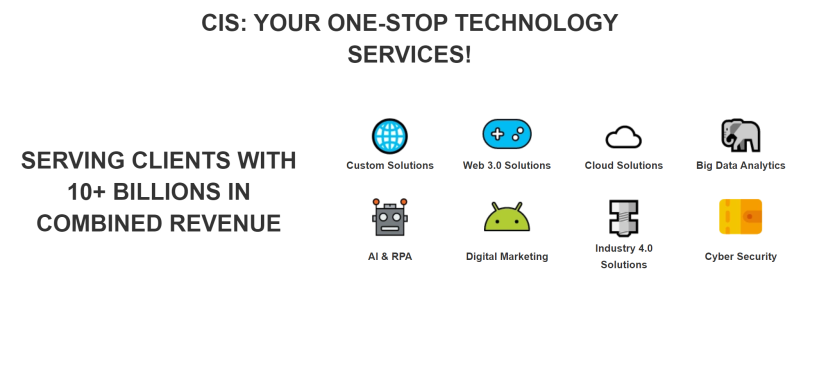Maximizing ROI: The Cost and Benefits of Adopting Hubspot Crm for Your Business
- HubSpot CRM - Detailed Analysis by Enterprise Solutions Experts



Why Mid-size Companies and Enterprises needs HubSpot CRM:
Mid-size companies and enterprises need HubSpot CRM to help them streamline their customer relationship management processes. With HubSpot CRM, businesses can track interactions with customers, manage leads and contacts, automate tasks such as follow-ups and emails, generate reports on sales performance, integrate with other business systems such as accounting software or marketing automation platforms, and more. All of these capabilities make it easier for mid-size companies to increase efficiency in managing customer relationships while also helping them better understand customer behavior so they can develop strategies that drive growth.
Benefits of using HubSpot CRM in Mid-size companies and Enterprises:
1. Streamlined Data Management:
HubSpot CRM helps mid-size companies and enterprises to easily manage customer data in one centralized location, making it easier to access, update and analyze information quickly.
2. Automation of Processes:
With HubSpot CRM, businesses can automate repetitive manual tasks such as lead scoring or contact management that would normally require significant time investments from employees. This allows them to focus on more important tasks that move the business forward.
3. Lead Generation & Conversion Tracking:
Companies can use HubSpot's powerful marketing tools to generate leads through online campaigns and track their progress through the sales funnel with detailed analytics reports.
4. Comprehensive Reporting & Insights:
Businesses can gain insight into their customers' behavior by analyzing data gathered from emails, website visits, social media interactions and more using advanced reporting features within the platform.
5 Improved Customer Experience:
By leveraging automated workflows and personalized customer experiences based on customer segmentation criteria, businesses are better equipped to provide a superior level of service for each individual customer interactionDetailed Features of HubSpot CRM for Mid-size companies and Enterprises:
1. Contact Management:
HubSpot CRM allows users to store and manage all contact information in one place, including contact details, social media profiles, company data, and more. It also offers features like automated list building from emails and website visits as well as advanced segmentation for targeted campaigns.
2. Sales Pipeline & Forecasting:
With the help of HubSpot CRM's sales pipeline feature, users can easily track deals through each stage of the sales cycle-from lead to close-and generate accurate forecasts based on past performance. Additionally, they can set up notifications to stay updated on new leads or changes in deal status.
3. Automated Workflows & Email Tracking:
The platform enables users to automate repetitive tasks such as follow-ups or task reminders with its workflow automation tool and keep track of email opens/clicks with real-time email tracking capabilities.
4. Reporting & Analytics:
Users can access detailed reports that provide insights into their team's performance over time so they can make better decisions about where to focus their efforts going forward. They can also create custom dashboards for a quick overview of key metrics related to their business objectives (e.g., number of conversions).
5 .Integrations:
HubSpot CRM integrates seamlessly with other popular apps such as Gmail, Outlook Calendar, Dropbox, Slack etc., allowing users to work within the same interface without having to switch between multiple programs or platforms constantlyWho are the Users of HubSpot CRM:
HubSpot CRM is used by businesses of all sizes, including small businesses, medium-sized companies, and large enterprises. It is also popular with freelancers and other independent professionals. Common industries using HubSpot CRM include marketing, sales, customer service, IT/software development, education, healthcare/medical services and hospitality.
How to ensure Data Security and Compliance with HubSpot CRM:
1. Ensure that all data is encrypted and stored securely:
HubSpot CRM provides encryption for all customer data, making it more secure against malicious attacks.
2. Use two-factor authentication:
Two-factor authentication adds an extra layer of security to your accounts by requiring a second form of verification beyond the usual username and password combination. This helps protect your account from unauthorized access even if someone were to guess or steal your login credentials.
3. Regularly audit user roles and permissions:
Make sure users only have access to the information they need in order to do their job effectively while keeping sensitive company data out of reach of those who don't need it. It's important to regularly review user roles and permissions so that you can ensure everyone has appropriate levels of access at any given time based on their current role within the organization.
4. Implement a comprehensive training program for employees:
Educating employees about best practices when handling confidential information is essential in order to maintain compliance with regulations such as GDPR, HIPAA, etc., as well as internal policies related to data privacy and security protocols within HubSpot CRM specifically .
5. Utilize third-party tools for additional layers of protection :
Third-party tools like antivirus software, firewall solutions, VPNs (virtual private networks) , intrusion detection systems (IDS), etc., can help provide additional layers of protection against potential threats or breaches into HubSpot CRM databases or other sensitive areas where customer information may be storedHow HubSpot CRM can increase organization Productivity, Agility, and Profitability:
1. Automate processes:
HubSpot CRM can help automate mundane tasks, such as data entry and customer follow-up, freeing up valuable time for more important activities. This helps increase efficiency and productivity across the organization.
2. Streamline communication:
With HubSpot CRM's integrated tools, organizations can easily keep track of conversations with customers in one place. This makes it easier to stay organized and quickly access customer information when needed, leading to improved customer service and increased agility in responding to inquiries or requests from customers or prospects.
3. Improve sales performance:
By tracking key metrics like leads generated, deals closed, pipeline value, etc., HubSpot CRM gives teams visibility into their sales process so they can identify areas for improvement that will lead to higher profitability over time.How to Measure KPIs and increase Benefits of implementing HubSpot CRM in Mid-size companies and Enterprises:
1. Track the number of leads generated:
Monitor the number of leads generated from using HubSpot CRM, as well as their quality and source. This will help you measure how effective the tool is in generating new business opportunities for your organization.
2. Measure customer satisfaction:
Measure customer satisfaction levels before and after implementing HubSpot CRM to assess its impact on customer service delivery. Ask customers about their experience with the platform, such as ease-of-use, features offered, responsiveness of support staff etc., to get an accurate picture of how satisfied they are with it.
3. Assess time savings:
Track how much time employees save by using HubSpot CRM compared to other methods or tools used previously for managing customer relationships and sales processes. This will give you a good indication of whether or not your investment in this tool is paying off in terms of increased efficiency and productivity gains over time.
4. Analyze ROI (Return On Investment):
Calculate return on investment (ROI) by measuring total costs incurred versus total benefits achieved through implementation of HubSpot CRM across different departments within your organization over a certain period of time frame e.g., six months or one year etc.. This helps you determine if investing into this technology has been worth it or not based on actual results achieved so far against set goals/objectives initially defined when deploying it across all applicable areas within your company structure(s).How HubSpot CRM can increase Employee Morale in your organization:
HubSpot CRM can increase organization employee morale by providing a centralized platform for employees to access customer data, collaborate on tasks, and track progress. This allows employees to feel more connected with their work, as they have visibility into the impact of their efforts across the entire organization. Additionally, HubSpot CRM provides tools that enable teams to quickly respond to customer inquiries and resolve issues in an efficient manner. These features help reduce stress levels among employees and make them feel appreciated for their contributions.
How HubSpot CRM is Better than its Competitors:
HubSpot CRM is better than its competitors because it offers an all-in-one customer relationship management (CRM) platform that simplifies the process of managing contacts, tracking conversations, and closing deals. It also provides powerful marketing automation tools to help you create targeted campaigns and measure their success. Additionally, HubSpot CRM integrates with a variety of third-party apps like Salesforce and Gmail, making it easier to manage your data across multiple platforms. Finally, HubSpot's user interface is modern and intuitive - allowing users to quickly find what they need without having to navigate through complicated menus or search for buried features.
Cost to Develop & Implemention of HubSpot CRM:
The cost to develop and deploy HubSpot CRM will vary depending on the scope of the project. Generally speaking, development costs can range from $3,000 - $20,000 or more while deployment costs can range from $500 - $5,000 or more. Additionally, there are ongoing subscription fees associated with using HubSpot CRM which start at around $50/month for basic plans.
Why outsourcing implementation services for HubSpot CRM is better for Mid-size companies and Enterprises:
Outsourcing implementation services for HubSpot CRM is better for mid-size companies and enterprises because it can help them save time, money, and resources. By outsourcing the implementation process to a professional service provider, these companies can get their CRM system up and running quickly with minimal effort on their part. The service provider will be able to provide expertise in setting up the system correctly from start to finish so that all of the features are working as intended. This ensures that there are no costly mistakes made during installation or setup which could lead to lost data or other problems down the line. Additionally, an experienced third party may also be able to offer support after launch if any issues arise while using the CRM platform.


